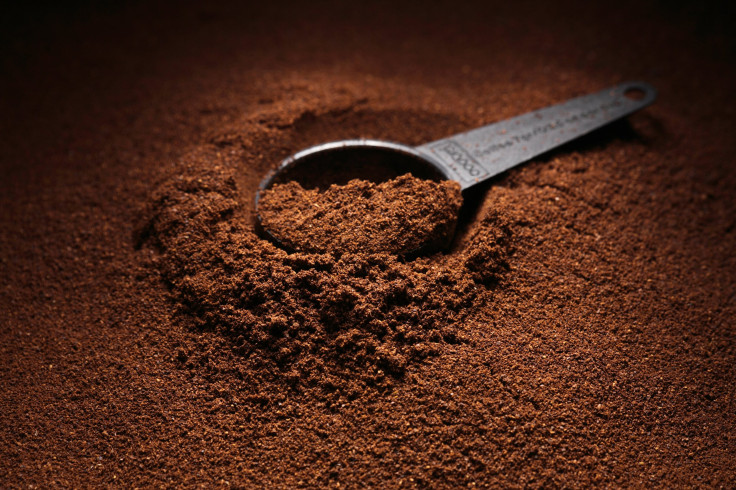Leftover Coffee Grounds Can Be Used As Food Additives For Antioxidant Boost

Don’t throw out the coffee grounds from your morning brew just yet. Researchers from the American Chemical Society not only discovered there were rich antioxidants lurking in the leftover grounds, but also how to measure the concentration and extract it for consumption. The study, published in the Journal of Agricultural and Food Chemistry, reveals a way to sprinkle the reaped health benefits into other foods.
Arabians began brewing coffee around 1,000 A.D., but it wasn’t until they began to cultivate it for trade that it spread around the world. Humans have been drinking down its disease-fighting antioxidants ever since. Antioxidants block free radicals from damaging cells, especially those that may lead to cancer. Over the years, there have been over 19,000 studies exploring the possible health benefits from coffee.
Although it is well known coffee is one of the most popular drinks in the world and a rich source of antioxidants, researchers have only now sifted through the grounds in search of benefits. Study coauthor María-Paz de Peña and her research team used three different methods for releasing antioxidants from the grounds, and after they tested the concentrations, they found some extracts have higher levels of antioxidants than the amount found in a steaming cup of liquid brew.
Previous research has proven coffee’s antioxidant properties in the past, but until now the benefits lurking inside the lump of wet brown grounds went unknown. It turns out, antioxidants travel through each stage of the brewing process, from bean to hot liquid to coffee grounds, stabilizing free radicals along the way. The benefits from coffee become more potent after roasting, and there may soon even be an extract to add into other food products, thanks to the American Chemical Society’s new extraction process.
While some antioxidants are made naturally within the body, other types can only be obtained from outside sources, such as daily diet and dietary supplements. According to Harvard Medical School, coffee drinkers were 50 percent less likely to develop liver cancer and less likely to develop colon, breast, and rectal cancers. They’re also half as likely to develop diabetes by lowering blood sugar level and increasing metabolism.
"Overall, the research shows that coffee is far more healthful than it is harmful," Tomas DePaulis, a research scientist at Vanderbilt University's Institute for Coffee Studies, told WebMD. "For most people, very little bad comes from drinking it, but a lot of good."
Source: De Peña MP, Monente C, Ludwig IA, Irigoyen A, and Cid C. Assessment of Total (Free and Bound) Phenolic Compounds in Spent Coffee Extracts. Journal of Agricultural and Food Chemistry. 2015.



























